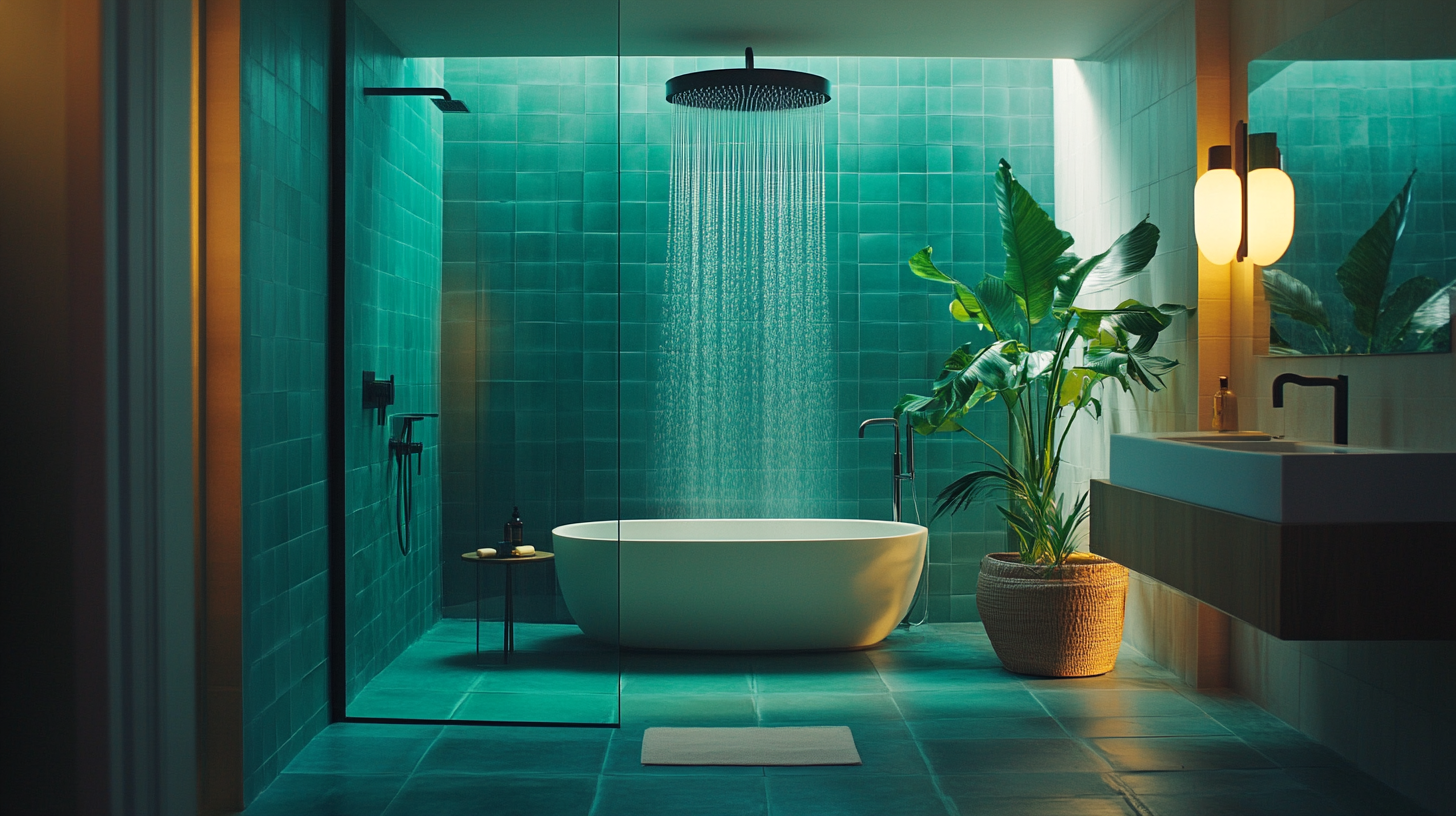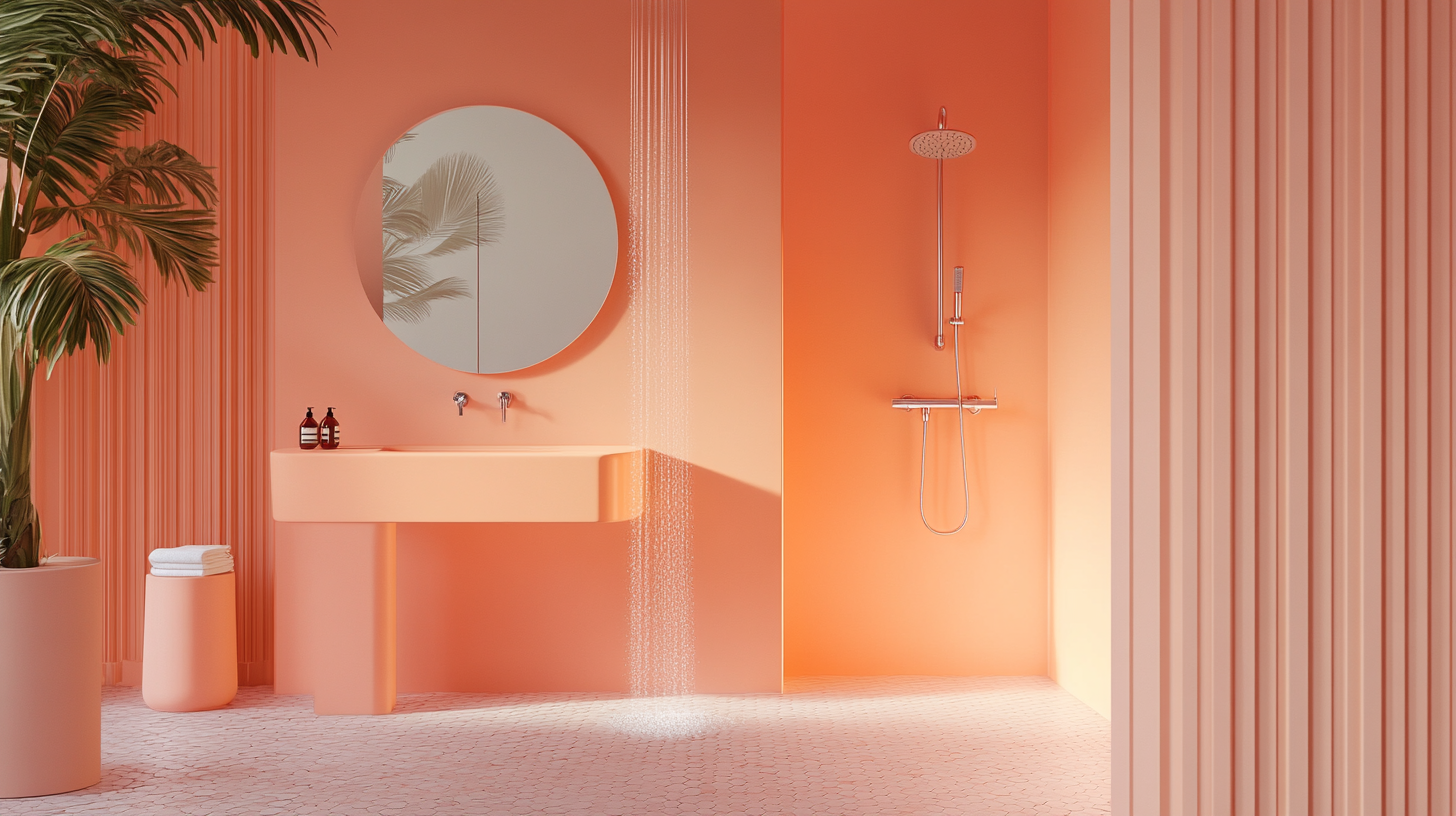
Challenges with Choosing the Right Shower Head for Your Needs
Choosing the right shower head is a task that often goes overlooked, yet it plays a significant role in enhancing daily relaxation and promoting water conservation. According to a report from the Environmental Protection Agency (EPA), showering accounts for nearly 17% of residential indoor water use, which amounts to about 40 gallons per day for the average American family. With a wide variety of designs, spray patterns, and water efficiency ratings available in the market, selecting the optimal shower head can deeply influence both your comfort and water conservation efforts.
Furthermore, a survey by the Tub & Shower Manufacturers Association (TSMA) reveals that consumers are increasingly prioritizing water-saving features, with 68% of respondents expressing a desire for shower heads that utilize less water without sacrificing performance. However, the abundance of choices can lead to confusion, making it vital for consumers to understand their specific needs and preferences. In this blog, we will explore the challenges associated with selecting the right shower head, providing insights that will help you make a more informed decision for your home.

Understanding Your Showering Preferences: What to Consider
When it comes to selecting the right shower head, understanding your showering preferences is crucial. Personal preferences can greatly influence which features you’ll prioritize. For instance, if you love long, relaxing showers, you might want a shower head that offers a strong water pressure and a wide spray pattern. On the other hand, if you prefer quick rinses, a more focused spray might be sufficient. Consider how the shower head fits into your daily routine and what kind of experience you want each time. Water efficiency is another important factor to contemplate. With increasing awareness of environmental impact, many consumers are leaning toward low-flow shower heads. These options can save significant amounts of water without sacrificing performance. However, if you enjoy a more powerful spray, you may need to find a balance between efficiency and enjoyment. Researching models that provide the best of both worlds will allow you to enjoy guilt-free showers. Moreover, consider the design and functionality of the shower head. Adjustable heads or those with multiple settings can offer versatility, catering to different preferences on different days. If you share the shower with family members or roommates, a customizable option might be ideal to satisfy various tastes. Ultimately, understanding your preferences will guide you toward a shower head that enhances your bathing experience and aligns with your lifestyle.

Different Types of Shower Heads: Pros and Cons
Choosing the right shower head can be a daunting task, especially with the variety of options available today. Understanding the pros and cons of different types can significantly impact your showering experience. For instance, filtered shower heads are increasingly popular due to their ability to improve water quality. They effectively remove harmful substances like chlorine and heavy metals, which can aid in keeping your skin healthy and your hair shiny. With options designed for straightforward installation, these shower heads make a meaningful difference with minimal effort.
Handheld shower heads also offer a unique blend of versatility and convenience. Their adjustable nature allows users to reach all areas easily, making them ideal for both everyday use and for those seeking a spa-like experience at home. Moreover, the sheer abundance of spray patterns available means you can customize your shower based on your mood or need, whether it's a refreshing rinse or a gentle massage.
Rain shower heads provide another enticing option, simulating a luxurious downpour that transforms your morning routine. These models vary in design and functionality, offering an indulgent experience that can elevate any bathroom. By exploring the different types of shower heads available, you can find one that caters to your specific needs, leading to a more enjoyable and beneficial shower experience.

Water Pressure Issues: How They Impact Your Shower Experience
When selecting a shower head, one of the most significant factors to consider is water pressure, as it directly impacts your shower experience. According to the Environmental Protection Agency (EPA), optimal water pressure for a shower is typically between 40 and 60 psi (pounds per square inch). Water pressure that falls below this range can result in a lackluster shower experience, leaving users feeling unsatisfied and unclean. Many homeowners may be unaware that low water pressure can often be traced back to household plumbing issues such as pipe corrosion or leaks, which can exacerbate the situation.
Additionally, the design of the shower head plays a crucial role in how water pressure is experienced. High-efficiency shower heads, which are designed to use less water, may inadvertently reduce the sensation of water pressure due to their flow rate restrictions. The EPA's WaterSense program notes that products meeting their efficiency criteria can save over 2,300 gallons of water per year for a family of four, but this must be balanced with consumer satisfaction. Those seeking a powerful shower experience should consider adjustable shower heads or models specifically designed to enhance pressure without significantly increasing water usage.
Ultimately, understanding the relationship between water pressure and shower head performance can help consumers make informed decisions. Homeowners should assess their current water pressure before purchasing a new shower head, ensuring they choose a model that not only meets aesthetic desires but also delivers the desired shower experience. Proper installation and regular maintenance of plumbing can also significantly impact performance, making it essential for homeowners to be proactive about their water systems in order to enjoy a rejuvenating shower every time.

Budget vs. Quality: Finding a Balance for Your Shower Head
When it comes to selecting the right shower head, the dilemma often boils down to budget versus quality. According to a 2022 report from the Home Improvement Research Institute, nearly 72% of homeowners prioritize cost when upgrading their bathroom fixtures. While it's tempting to go for an inexpensive option, this might lead to long-term dissatisfaction and extra costs in maintenance or replacements.
Quality shower heads, generally ranging from $50 to $200, offer superior materials and technology that can significantly enhance your shower experience. A study by the National Association of Home Builders revealed that premium shower heads often feature advanced water-saving technologies, achieving up to 30% more water efficiency compared to standard models. While investing in higher-quality options may seem daunting initially, the durability and performance can lead to significant savings on water bills over time.
Furthermore, a survey conducted by the Plumbing Manufacturers International indicated that 89% of consumers who invested in a quality shower head reported improved satisfaction with their bathing experience. This highlights the importance of finding a balance between budget and quality. While cheaper models may fit a tighter budget, they often compromise on features like adjustability, flow rate, and comfort—elements vital for an enjoyable showering experience. Ultimately, taking the time to weigh these factors can lead to a more fulfilling purchase that aligns with both your financial goals and your expectations.
Installation Considerations: DIY or Professional Help?
When it comes to installing a new shower head, one of the first questions homeowners face is whether to tackle the project themselves or hire a professional. DIY installations can save money and provide a sense of satisfaction, but they also come with potential pitfalls. For instance, without the right tools or experience, you might end up with leaks or improper alignments that could lead to water damage over time. Understanding the intricacies of plumbing could make or break your installation process, so it's essential to weigh your capabilities before diving in.
On the other hand, hiring a professional can ensure that the job is done correctly and efficiently. Experienced plumbers not only possess the necessary tools but also understand local plumbing codes that may affect your installation. They can recommend the best shower heads for your specific needs and even offer valuable insights on water pressure and flow rates. While professional help comes at a cost, the peace of mind and warranty often provided can outweigh the expense in the long run.
Ultimately, the decision hinges on your confidence level, skills, and the complexity of the installation. If you’re looking for a simple upgrade that requires minimal adjustments, a DIY approach might be feasible. However, for more intricate systems or if you're unsure about the installation process, enlisting the help of a professional could be the smarter choice.




